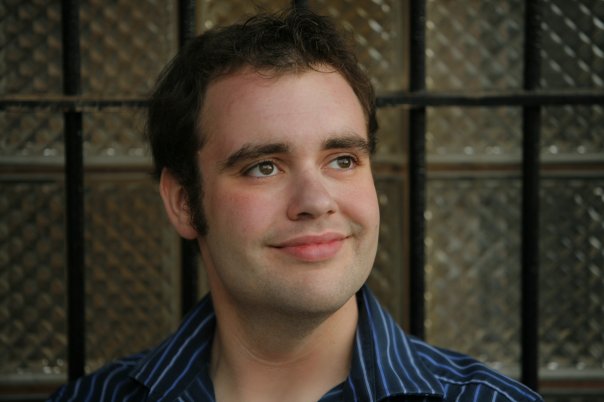
An Interview with CTI Graduate Aaron Sanko
Jul 12, 2019

Can you tell us a bit about your career path and how you ended up where you are today?
My pathway to my current role included stops in an array of artistic and non-artistic roles. I grew up in the Detroit area with limited exposure to theater, but was fortunate enough to have an incredibly supportive single mother and elementary school teacher to introduce me to this previously elusive world. I began professionally as an actor at age twelve, then found my way into singing opera, conducting, teaching, and producing. After retiring from the stage, I went back to school to study business and took a brief hiatus from theater to work in the corporate human resources world. After a lot of self-reflection, I decided that my primary passions are people and the arts, so I decided to pursue a career as a talent representative. I spent some time with UIA Talent Agency before opening my own consulting company, The Cruxory Group, which I founded to serve the market of artists running businesses without formal business training. Amidst this work, and after taking multiple CTI courses to sharpen my skill set, I produced and co-produced a variety of shows on Broadway, Off-Broadway, in festivals, and in international venues. Highlights from these experiences include collaborations with fellow CTI alumni; I served as Music Supervisor and General Partner for two award-winning productions written by Christian De Gré Cardenas, and as Music Director for the first musical to be staged in Liberia. Now, several years later, I’m back with UIA as Managing Director, representing actors, singers, and creatives while overseeing company operations and HR policy. Looking forward, I have an interest in building a literary department at the company. At this point in my journey, which was definitely a winding road, I’m leveraging my strengths and experiences to advocate for artists and help guide them through the ever-changing industry landscape.
You’ve clearly had a variety of experiences and vantage points throughout your career. Is there anything in particular that you’ve noticed that you think this industry can improve?
Although it’s beginning to be addressed in some BFA programs, I’m seeing many artists enter the marketplace with a general lack of practical business knowledge. I would love to see more higher education programs encouraging creative entrepreneurship in ways that empower artists to identify their strengths and develop a well-rounded business-skills toolbox which will allow them to support their art while they find their place in the world.
I also think we can improve the ways we’re working on the systemic lack of diversity in theater. We should be committing our resources to diversifying theater makers. This goes all the way back to early arts education – how can we expose students to professions within theater beyond acting? It’s our responsibility to identify both the creators AND arts business people of tomorrow. I’m hoping we can create more funnels into a wider array of roles in the industry at an earlier point in one’s education.
You mentioned earlier that you’ve produced a show in Liberia. Can you tell us a bit more about that?
Broadway Artists Connection and International Children’s Network recruited me to help produce and music direct the first musical to be staged in Liberia, The Wiz. We cast the show with young locals, some of whom were war orphans, ranging from nine to twenty-five. None of the individuals we worked with there had ever experienced theater. There were many unexpected challenges – some logistical, others theoretical. We had to consider equipment transportation, power conversion, the lack of radio space regulation, and water supply. The actors themselves had no exposure to the source material and had never read music before. As the country is emerging from a decades-long civil war, entertainment is certainly a luxury. Because of their reality, the students were all preparing for professions in medicine, law, and civil engineering to help rebuild their fractured community. A career in the arts was unimaginable to them, so we had to examine how to tailor the creative process in a way that they would appreciate.
We wanted to leave the community with the resources to continue these newfound passions in support of the belief that theater and the arts can be vehicles for education and development. We wanted to make an imprint and not just a memory.
Can you share any life lessons you’ve discovered throughout your multi-faceted career?
While I value being a well-rounded generalist, I’ve learned and observed that challenges can arise when trying to wear too many hats simultaneously. Beyond the limit of effective multi-tasking, it’s important to be sensitive to conflicts of interest, such as a producer performing in their own show. There are hats that can be worn together with grace, and hats which need to be put away for a period of time. This can lead to a change in career trajectory, which can be panic-inducing; being fearless about it almost always pays off. Exploring new capacities will inspire and empower you, and and you can always return to the old role. If you embrace the risk, take the time to identify your inherent strengths, and prioritize the people involved in these decisions, you can balance loyalty and opportunity to find your path. You’ll likely be much happier, wiser, and wealthier for it than if you stood still and stayed safe.